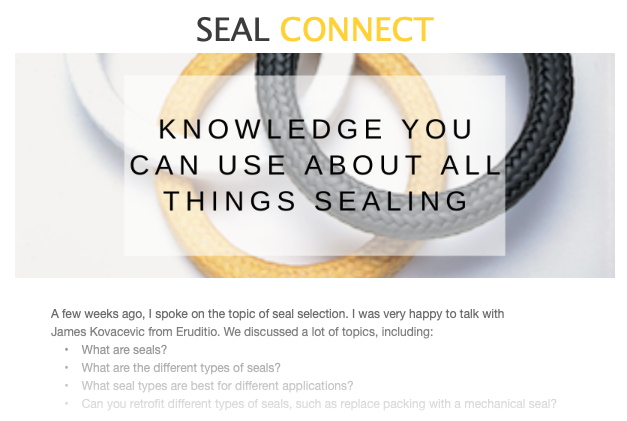08/21/2023
Are Your Products BABA Compliant?
Many Infrastructure Investment and Jobs Act projects quickly move from the planning table to the groundbreaking stage.
08/21/2023
15 Steps To Maximizing The Strength Of Your Maintenance Team
Strengthening a plant maintenance team involves a combination of technical, managerial, and interpersonal strategies.
08/17/2023
Lengthening The MTBR; SEPCO Best Practices
MTBR (Mean Time Between Repair/Replacement) for mechanical seals refers to the average duration between maintenance or repairs needed for these components. Lengthening the MTBR of mechanical seals involves implementing proactive measures to enhance their performance, prevent premature failures, and reduce the need for frequent repairs. Here are some strategies to help you extend the MTBR … Continue reading "Lengthening The MTBR; SEPCO Best Practices"
08/16/2023
Packing or Mechanical Seals – Which Solution is Right For You; A Case Study
Introduction: Recently, SEPCO was contacted by a Georgia-based specialty chemical group, an existing client, who wanted to explore the idea of converting some of their pumps from packing to mechanical seals. SEPCO provided a thorough evaluation of how to ensure the most successful outcome. This case study outlines the implementation of mechanical seals and the … Continue reading "Packing or Mechanical Seals – Which Solution is Right For You; A Case Study"
08/15/2023
Mechanical Seals Not Performing Reliably; Here’s A List Of SEPCO’s Best Practices To Ensure Reliability
Ensuring reliable performance of mechanical seals is essential for maintaining efficient and trouble-free operation of pumps and other equipment.
08/14/2023
The Most Common Reasons Mechanical Seals Fail
Mechanical seals are designed to be reliable and robust, but they can still experience failures under certain conditions. The most common reasons for mechanical seal failures include: Improper Installation: Incorrect installation is one of the leading causes of seal failure. Poor installation practices, causing misalignment, can lead to premature wear and leakage. Contamination: The presence … Continue reading "The Most Common Reasons Mechanical Seals Fail"
08/10/2023
Problem Solved: Sealing Solutions For The Chemical Industry
To address the challenges the chemical industry faces in pump sealing processes, several solutions and best practices can be implemented. Here are some effective solutions that SEPCO recommends to mitigate these issues: Chemical Compatibility: Choose sealing materials that are highly chemically resistant and compatible with the specific chemicals being processed. Utilize materials such as PTFE, … Continue reading "Problem Solved: Sealing Solutions For The Chemical Industry"
08/08/2023
Air Seals: What You Need To Know
Air seals are a new solution in pump sealing technology. Air Seals are designed specifically for pumps in non-hazardous services. The design target was reducing water usage and product dilution, eliminating leakage, making it easy to install, maintenance-free, and, if installed and operated properly, will exceed the life of anything previously designed, in excess of … Continue reading "Air Seals: What You Need To Know"
08/03/2023
High Performance Plastics and Their Advantages in Sealing Technology
High-performance plastics play an important role for valves and seals in many different industries. They offer unique advantages over traditional materials for valve and seal components, like metals and elastomers. For instance, many of these polymers are engineered to withstand demanding environments while still providing excellent sealing capabilities, and enhanced durability and reliability. Each polymer … Continue reading "High Performance Plastics and Their Advantages in Sealing Technology"
08/03/2023
SEPCO’s Ten Steps to Successfully Install Compression Packing
Proper packing installation is essential to prevent leakage and maintain efficient pump operation.
 SEAL CONNECT
SEAL CONNECT Find Your Sealing Solution
Find Your Sealing Solution